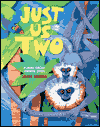




Need to spark creativity? Want to inspire your science or history classes then...share these fabulous books with your students today!
When did you start writing poetry? What inspires you to write it?
Who knows? It’s a mysterious process. I probably made it up in my head when I was very little, but my first recorded poem is from fourth grade, a rhyming ditty about the snow. The important thing wasn’t the poem, but what I NOTICED that made me write the poem: which is that, when sun shines on crusted snow, it sparkles like stars. That kind of noticing is still the basis of my poetry—that, and an overactive imagination! I love seeing and imagining things in new ways, which is why so many of my poems are “mask” poems—or, writing in a different voice (what it’s like to be a penguin egg, or a water boatman, or a dog). Also, delving into the vast soup of words in the English language is irresistible to me, like choosing a perfect pear. Matching a compelling idea with the right words is just heaven.
Poetry has been my genre of choice since high school, because I think metaphorically and always attach emotion to meaning and memory. I like writing that is short and intense—in fact, I have trouble reading long novels!! I’ve experimented with other forms of writing (and hope to again), but always come back to poetry. It’s what I do best.
How do you develop an idea into a collection?
Well, often it starts with a question, like, “Where do inventors get their ideas?” I asked myself this after I saw a maple seed “helicopter” spinning down from the sky and wondered if it had given rise to the idea of the helicopter. My book EUREKA! POEMS ABOUT INVENTORS grew out of this. To answer the question, I did lots of research about inventors and their ideas, lives, inspirations. Whoever seemed the most fascinating, I wrote a poem about—then arranged them chronologically, with a logical beginning point (prehistoric man) and end point (the world wide web).
SONG OF THE WATER BOATMAN worked more or less the same way, except I needed a different framework, and decided on a seasonal one: spring to fall, since that’s when the pond is most active. The question that began this book was: “What happens to pond creatures when it gets dry or cold?” When I started doing research, I was enchanted with the names of the pond insects: water boatman, backswimmer, water bear. And the stories of their lives and how they survive was so fascinating.
I think the more books of poetry you put together, the easier it is to conceive of a “collection” vs. a group of individual poems.
In Song of the Water Boatman (and your other fabulous collections as well) you have such a strong rhythm to your work. How do you revise a piece to have this feeling of forward movement?
This is all gut instinct, I think. I hear the words in my head and they either sound right (they have a Wow! quotient) or need work (they have a Bo-ring quotient). I read and have always read a lot of poetry and listened to a lot of music--those breath-taking rhythms get inside your head and you want to recreate them, create them anew. Also, it’s imperative for me to put work aside for a few days or a week or month to make sure that what I thought was Wow! at first doesn’t turning out to be Bo-ring. If the work still makes me tingle—if it gives me that moment that Emily Dickinson described as feeling physically as if the top of my head were taken off, then I know it’s worth pursuing. I don’t mind revision, if I feel the piece is worth it. Nothing is more satisfying than to change a few things and then realize, Yes! That’s it!
What project are you working on now?
My next published book will be a story in concrete poems called MEOW RUFF, coming out in spring 2006, illustrated by Michelle Berg. It’s impossible to describe, but it’s basically about a dog and a cat. I have a couple more poetry books coming out in 2007. The manuscript I’m actually writing right now won’t come out until 2008, and it is poetry about various creatures in the world that are survivors—in other words, the opposite of endangered species. It will probably be called UBIQUITOUS. It has been a challenge, since it involves lots of research about evolution and he development of species. But I love to find out new things about the natural world—it’s what keeps me going. Well, that and my dog!
THANKS so much!
